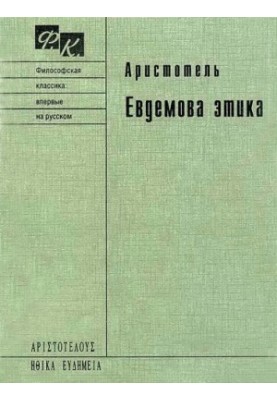Evdemova ethics. In eight books
 Instant download
Instant download
after payment (24/7)
 Wide range of formats
Wide range of formats
(for all gadgets)
 Full book
Full book
(including for Apple and Android)
Since antiquity, three ethics have reached us, which are part of the traditional corpus of Aristotelian writings: “Nikomakhova ethics”, “Evdemov ethics” and “Great ethics”, the authenticity of which most scientists deny, although there are serious arguments in favor of the opposite opinion. Scientific discussions during the last 20th century, in contrast to the centuries-old tradition of European science, led to the recognition of the status of an authentic work for the Evdem ethics (E.). E. ) along with Nikomakhova ethics (N. E. ) (although the little mystery is that three books (V, VI, VII) H. E. and three books (IV, V, VI) E. E. fully coincide, still not fully explained). At the same time, at least in some way, the problem of authorship is still unresolved - who wrote E. E. , whether a student of Aristotle Eudem of Rhodes, or we are talking about Eudem of Cyprus, who died in the war a friend of Aristotle, to whom he dedicated this ethics In any case, Aristotle's "Eudaemics" is one of the important works of the great philosopher, which, however, until this point was rarely the subject of study. This edition presents for the first time the translation of the “Evdem Ethics” into Russian, the attached Greek text and comments. The text of ethics is published together with the three usually omitted in the publishing practice t. n. "middle books", general for "Evdemova" and "Nikomakhova" ethic. The appendix publishes research on issues related to the understanding of the ethical system of Aristotle, as well as the chronology and composition of his two “ethics”.
LF/881779093/R
Data sheet
- Name of the Author
- Aristotle
- Language
- Russian
- Series
- Философская классика: впервые на русском
- ISBN
- 9785954000252
- Release date
- 2005























